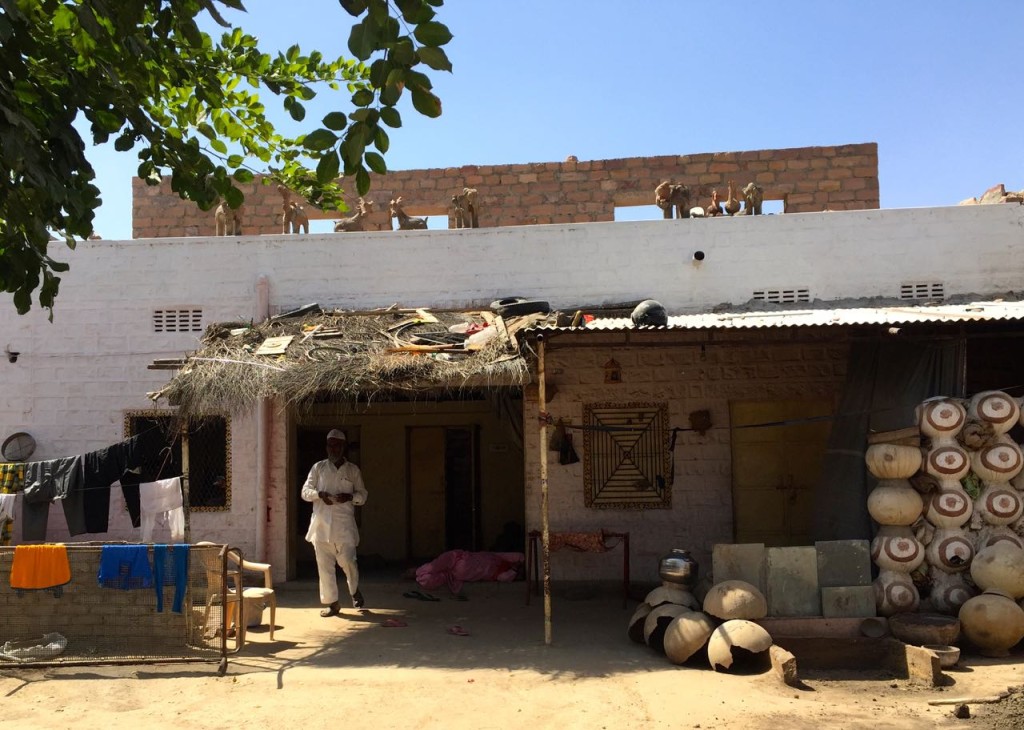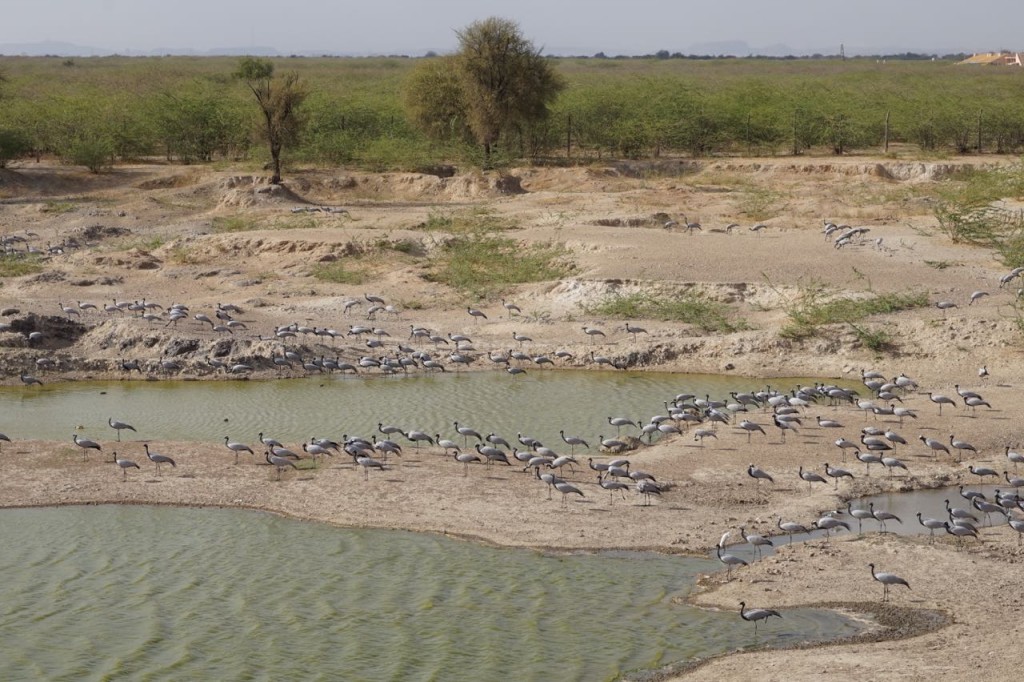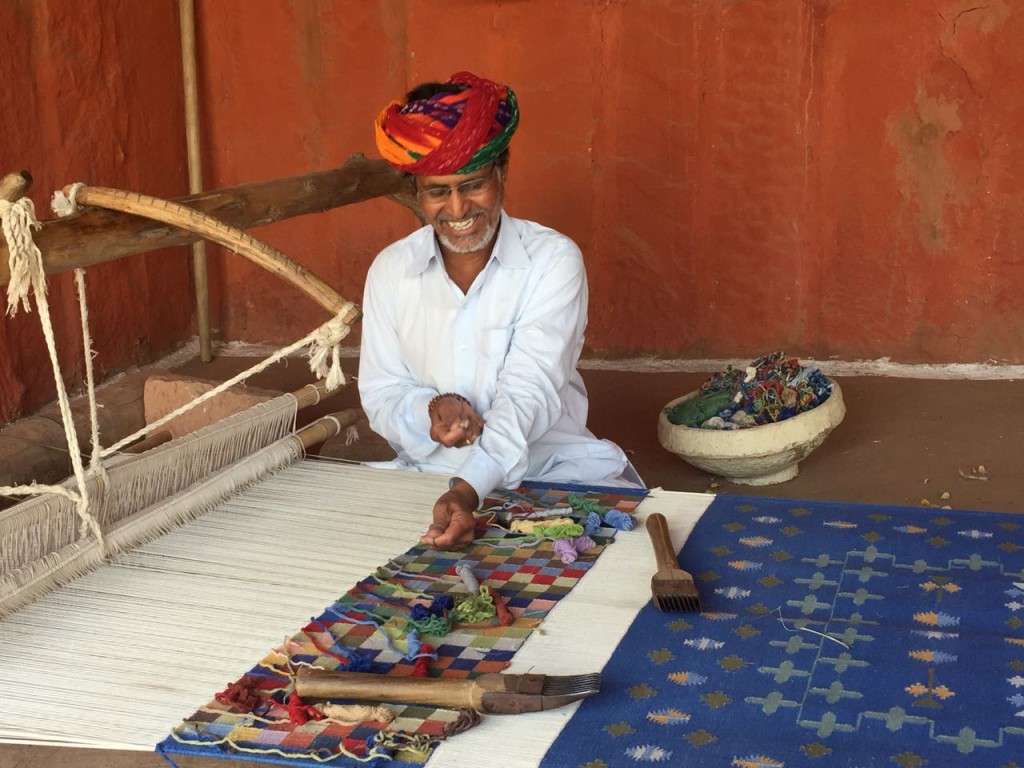Picture a human female nursing a stray doe with her own breast milk. When I first saw this video in a BBC documentary, I was speechless. It was filmed in a village in Rajasthan, India that I had never heard of before. The lady’s husband found a baby deer who went astray, brought it home, and took care of it until it was ready to go out into the wild again. The documentary showed the close quarters humans and animals share and the loving relationship they have with one another in this village.
My tour group to India in March 2016 and I went to witness this firsthand. We hired a jeep that took us on a half day safari through the Bishnoi community near Jodhpur, gateway city to India’s desert.
At first glance, we saw nothing unusual. Thatched huts, modest brick homes, dirt roads, open grasslands, cows, farms, etc. School kids waived at us as we drove past. They screamed out all the English words they knew, “Hello, dollar, pencil, I love you, bye!” We passed by the little one story building that was their school. Then we saw wild camels grazing in the field next door. A few deer and antelopes. More cows and buffalos.
Bishnoi is a religious group found in the Western Thar Desert of India, and areas of Punjab, and Sindh in Pakistan. Founder of the religion, Guru Jambheshwar gave the message to protect trees and wildlife around 540 years ago, prophesying that harming the environment means harming yourself. He formulated twenty nine tenets. The tenets were not only tailored to conserve bio-diversity of the area but also ensured a healthy eco-friendly social life for the community.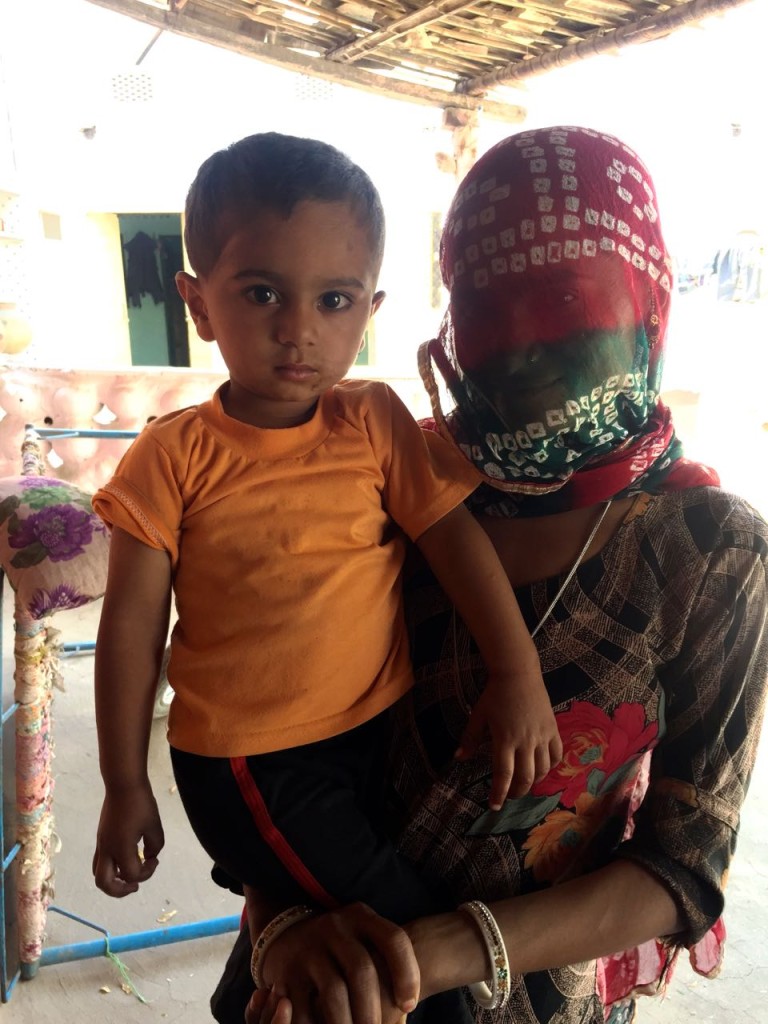
It turns out one of the tenets includes providing protection to all animals. Which means that the Bishnoi people allow their agricultural crops to be grazed on by wild animals and predators, only to gather what is left for themselves. This is hard to imaging because the area is dry, people are poor, and there is not much food to go around anyway.
Black bucks migrate from far off lands to the lake in this area, where they are provided ample food and protection against hunting.
They are also strictly vegetarian and do not allow the killing of animals. They go to the length of removing each ant or bug from firewood before using it for consumption.
Bison are also known as tree huggers due to an incident that happened in 1730. A local lady, Amrita Devi protested against the Maharaja to not cut trees in the area. 363 villagers died while protecting nature. They do not wear blue clothing as a large quantity of plants are harvested to make blue color dye.
During our visit, we stopped at the homes of a potter and carpet weaver to learn about local arts and crafts. Then we ate lunch at the home of Mr. Tulsiram, a Bishnoi villager. We welcomed us to his mud house with warm hospitality. We sat on woven beds and enjoyed a simple yet delicious meal of bajre ki roti (millet bread), daal (lentils), and ker sangri (capers and greens).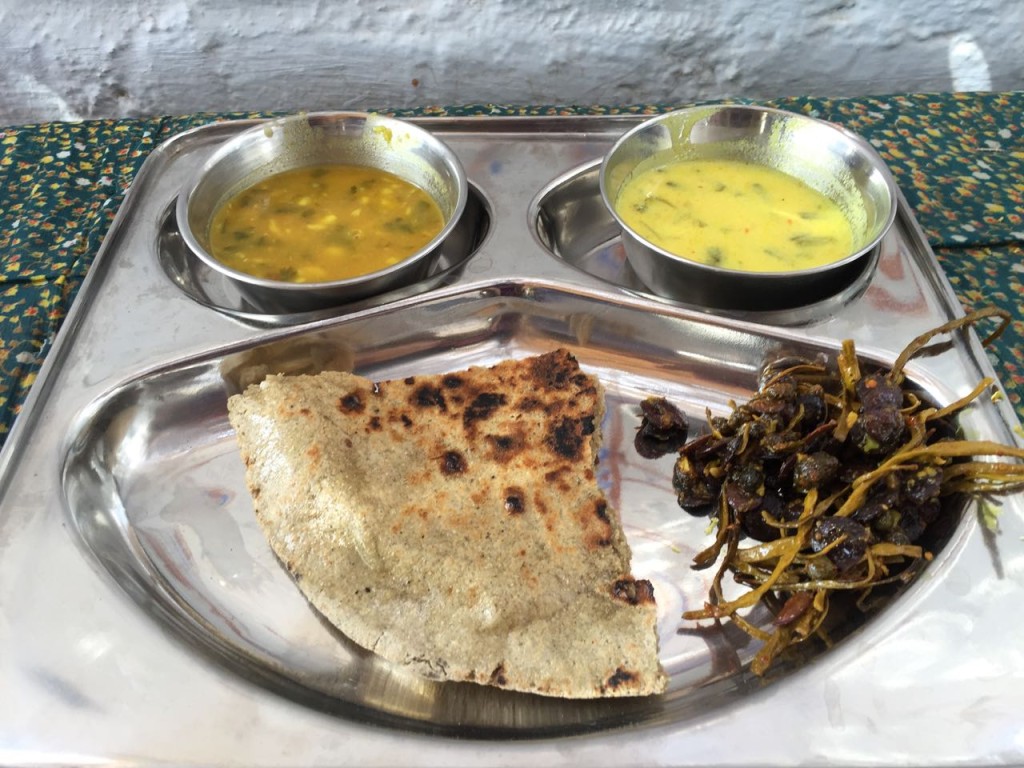 Tulsiram encourage me to eat more as he commented, “The only thing I bought for this meal was salt.” Like most people in the village, he grows everything he needs, including oils and spices. Though he doesn’t have much in terms of materialistic things, he is living a very sustainable and fulfilling life.
Tulsiram encourage me to eat more as he commented, “The only thing I bought for this meal was salt.” Like most people in the village, he grows everything he needs, including oils and spices. Though he doesn’t have much in terms of materialistic things, he is living a very sustainable and fulfilling life. 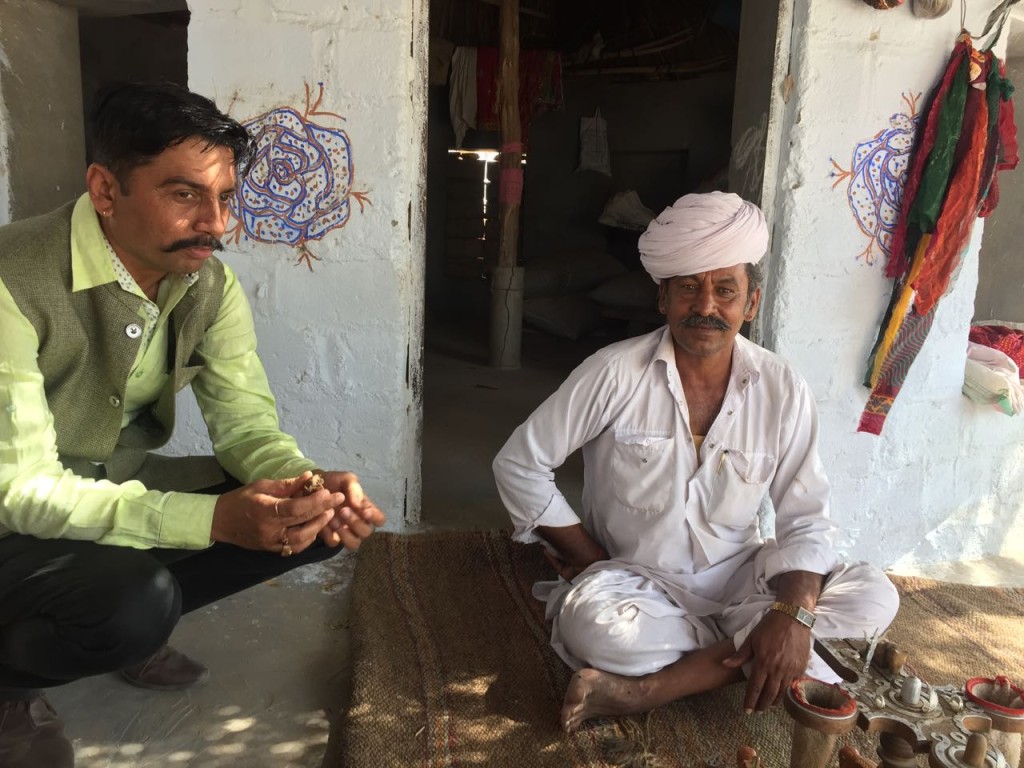
29 Rules of Bishnoi Faith
(source: Wikipedia)
- Observe 30 days’ state of untouchability after child’s birth
- Observe 5 days’ segregation while a woman is in her menses
- Bath early morning
- Obey the ideal rules of life: Modesty
- Obey the ideal rules of life: Patience or satisfactions
- Obey the ideal rules of life: Purifications
- Perform Sandhya two times a day
- Eulogise their God, Vishnu, in evening hours (Aarti)
- Perform Yajna (Havan) every morning
- Filter water, milk and firewood
- Speak pure words in all sincerity
- Adopt the rule of forgiveness and pity
- Don’t steal and not keep any intention to do it also
- Do not condemn or criticize
- Don’t lie
- Don’t waste the time on argument
- Fast on Amavashya and offer prayers to Vishnu
- Have pity on all living beings and love them
- Do not cut green trees, save the environment
- Crush lust, anger, greed and attachment
- Accept food and water from our purified people only
- Provide a common shelter for male goat/sheep to avoid them being slaughtered in abattoirs
- Don’t sterilise ox
- Don’t use opium
- Don’t take smoke and use tobacco
- Don’t take bhang or hemp
- Don’t take wine or any type of liquor
- Don’t eat meat, remain always pure vegetarian
- Never use blue clothe
